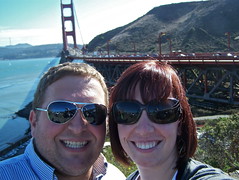 It’s been a bit of a weird week. I hadn’t posted anything on here in a few months because I was feeling in a bit of a creative drought. Then I felt pulled to comment on the whole VMA thing and touched on something pretty big. Over 900,000 hits in five days was completely unexpected — mind-blowing, actually. As soon as I started to see that post go crazy on Facebook and Twitter, I had two simultaneous, and equally frightening, questions pop up in my mind: 1) Why is this happening? and 2) What am I going to do next?
It’s been a bit of a weird week. I hadn’t posted anything on here in a few months because I was feeling in a bit of a creative drought. Then I felt pulled to comment on the whole VMA thing and touched on something pretty big. Over 900,000 hits in five days was completely unexpected — mind-blowing, actually. As soon as I started to see that post go crazy on Facebook and Twitter, I had two simultaneous, and equally frightening, questions pop up in my mind: 1) Why is this happening? and 2) What am I going to do next?
I’m sure I’ll go into the first question on many future posts, but for now we’ve arrived at the answer to the second question. What’s next? For me, it’s an exploration of comparison and creativity. I have been fervently reading through some of Brené Brown’s work and was reading up on this very topic.
As I was doing this, I received an e-mail from a woman named Kayleigh who wanted to share an article that brought up similar issues as my VMA post and, with it, she dropped some pretty incredible insight along the way. She said this:
“It is hard to be anyone in these days since comparison and the pursuit of ‘being worthy’ have become a blood sport.”
I’d never thought of comparison and the pursuit of being worthy as a blood sport, but she’s spot on. Comparison and countless attempts to prove our worth can easily draw blood and wound us. And with creative work, this is especially true. But the thing that’s different with creative work is that so many times our struggle is with self-comparison and attempts to prove our own worthiness to ourselves.
I was listening to an episode of the NPR show On Being where Krista Tippet interviews Brené Brown and a lot of this stuff comes up. Brown describes comparison as the thief of creativity. Comparison is the wet blanket that gets thrown over our creative fires — often of our own doing.
Any time we do anything creative, we put ourselves out there in a very tangible way. We write a play. We paint a portrait. We build something new. And we take a risk. Someone might look at it and reject it. And, in doing so, reject us.
How many times have you read a book and thought, “I’d love to write a book someday, but it’ll never be as good as this.”? Or listened to a song and thought, “You know I’d really like to write a song, but there’s no way to top this one.”?
As soon as we start that comparison game, our creativity starts to take a hit. Brown asserts that this is a primary entrance for shame. A lot of times our sense of self-worth can get tied into what we produce.
The adage goes like this: We’re worth something when we produce something. And not just anything, but something good. What we produce has to be worthwhile in order for us to be worthwhile. Sound familiar?
As a pastor, I feel this all the time around the sermons I write. If the sermon was really good, I think “I’m doing really great at this pastor thing.” If it falls flat, those voices of shame and inadequacy are right around the corner. And they get personal.
So how do we get out of this comparison spiral?
Make things. Build things. Create. Do.
Don’t let comparison get in the way of building what you yearn to build.
I posted a video of Ira Glass giving advice to creative people a while back. And it speaks so well to this conversation around creating outside of comparison. Check out the video here.
.
[vimeo http://vimeo.com/24715531]
.
Ira was particularly speaking to video producers, but it translates into any area of creativity. Build stuff. Do things. Write stories. Paint paintings. Put yourself out there. Create a HUGE volume of work.
Don’t listen to the comparison demons. Remember that creativity is a journey we’re all on in one way or another. Your creativity belongs to you and only you. So let’s get to it!
Oh, and be sure to check out Brené Brown’s book The Gifts of Imperfection for so much more good stuff. A lot of the ideas in this post are derived from Guidepost #6 of this book. But the whole book is so worthwhile.
Cheers,
Eric
P.S. For those of you who are like me and interested in nerdy studies, check out a paper called The Mindlessness of Social Comparisons and its Effect on Creativity by Harvard professor Ellen Langer, Stanford psychologist Laura Delizonna, and Fordham professor Michael Pirson.

















